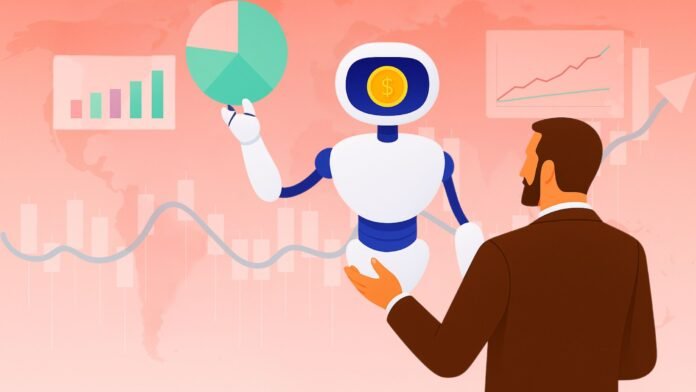AI’s Quantum Leap: Reshaping the Tech Job Market and Defining the Future of Work
The relentless march of Artificial Intelligence (AI) is fundamentally reshaping every facet of the global workforce, with no sector experiencing this seismic shift more acutely than technology itself. Once considered future-proof, the tech industry is now at the epicenter of a profound transformation, witnessing visible shifts in job roles, task automation, and even outright job replacements due to the pervasive integration of AI-powered systems and tools. As we navigate 2025 and beyond, every tech professional will encounter rapid changes in their employment landscape, underscoring the vital importance of adaptability, continuous skill enhancement, and a deep understanding of AI’s symbiotic role in the workplace.
This article delves into how AI is meticulously re-sculpting the tech workforce, meticulously examining both the inherent risks and the burgeoning opportunities that lie ahead. Whether you’re a seasoned software developer, a vigilant cybersecurity analyst, a meticulous data scientist, or simply an observer keenly interested in the evolution of the tech workforce, comprehending these ongoing changes is paramount to maintaining relevance and competitive edge in the dynamic tech sector.
The Automation Imperative: AI’s Role in Streamlining Coding
One of AI’s most palpable influences on the tech workforce is the automation of repetitive and routine coding tasks. Tools such as GitHub Copilot, Tabnine, and Amazon CodeWhisperer are no longer theoretical concepts but practical realities, capable of generating code snippets, refactoring functions, and even suggesting complex algorithms based on natural language prompts. This significantly reduces the “boilerplate” effort that has long consumed developers’ time.
For junior developers, this shift could translate into fewer entry-level opportunities and heightened competition. The foundational coding tasks traditionally assigned to new hires are increasingly handled by AI. However, this paradoxically drives up overall efficiency and enables consistently faster development cycles. For mid and senior-level developers, the narrative changes. They are freed from mundane coding, allowing them to focus on higher-order challenges: overseeing AI-assisted code, refining architectural designs, strengthening logic, enhancing security protocols, and spearheading genuine innovation. The essence of development shifts from brute-force coding to intelligent orchestration and oversight.
Beyond Replacement: Embracing Human-AI Collaboration
Despite widespread concerns regarding AI replacing human roles, the prevailing trajectory of the tech job market suggests a future of profound human-machine collaboration rather than outright substitution. AI is emerging as an indispensable assistant, empowering workers to achieve more with significantly less effort.
Consider the role of a DevOps engineer, who can now leverage AI to not only monitor intricate infrastructure but also identify anomalous behavior and even deploy automated fixes. Similarly, QA engineers are deploying AI to conduct comprehensive regression tests, predict potential bugs with uncanny accuracy, and compute complex datasets with unprecedented speed. This newfound technological prowess liberates human professionals to dedicate their invaluable time and cognitive resources to creative problem-solving, strategic thinking, and the pursuit of truly innovative solutions – areas where human ingenuity remains unparalleled. Businesses will increasingly seek individuals who possess the acumen to effectively leverage AI tools, transforming them into force multipliers for productivity and groundbreaking advancements.
The Dawn of AI-Centric Roles: A New Frontier in Tech Employment
As AI permeates every layer of technology, a vibrant ecosystem of new job roles is rapidly emerging, specifically designed to support, manage, and scale AI infrastructure. These specialized positions highlight that AI implementation is not solely about job elimination; it’s about a profound evolution and the creation of entirely new professional domains. Some of these burgeoning roles include:
- AI Prompt Engineers: Experts in the art and science of crafting high-quality prompts to elicit precise and desired responses from generative AI models. This role demands a unique blend of technical understanding and linguistic precision.
- Machine Learning Operations (MLOps) Engineers: Professionals specializing in the continuous integration, deployment, and scaling of AI models, ensuring their robust performance and efficient operation in real-world environments.
- AI Ethics and Compliance Officers: Guardians of responsible AI development and deployment, tasked with monitoring ethical issues, addressing bias and discrimination, and ensuring adherence to rapidly evolving regulations governing AI applications.
- AI Product Managers: Individuals who possess a nuanced understanding of AI capabilities and apply this knowledge to guide product development, creating innovative AI-enabled products that meet market demands and solve real-world problems.
These emerging roles underscore the reality that tomorrow’s workforce will be vastly different, characterized by a growing emphasis on interdisciplinary skills and a seamless blend of technical and human competencies.
The Ascendance of Soft Skills: The Irreplaceable Human Element
As machines increasingly shoulder technical and mechanical functions, the intrinsic value of human-centric soft skills is experiencing exponential growth. In an AI-driven world, qualities such as effective communication, profound emotional intelligence, unbridled creativity, and visionary leadership will become not just valuable, but indispensable and utterly irreplaceable.
For instance, AI, despite its analytical prowess, cannot effectively negotiate complex stakeholder needs and expectations, empathize genuinely with a frustrated user, or navigate the intricate moral and ethical dilemmas inherent in complex business situations. Consequently, tech professionals must cultivate a potent blend of technical fluency and human-centered skill sets. This includes the ability to inspire and lead diverse teams, translate nuanced user intent and real-world problem situations into coherent product contexts, and collaborate effectively across organizational boundaries. Universities and professional development programs are already adapting to this critical shift, embedding communication, critical thinking, and ethical reasoning modules into traditional computer science and engineering curricula.
The Mandate of Lifelong Learning: Staying Ahead of the AI Curve
In the AI-powered workplace, the half-life of technical skills is rapidly shrinking. Concepts and tools that felt cutting-edge just five years ago may be obsolete today. This dynamic environment necessitates a commitment to continuous, lifelong learning and upskilling.
This imperative involves not only understanding the intricate workings of AI models but also mastering the tools, languages, and frameworks that underpin AI functionality. Proficiency in programming languages like Python, deep dives into frameworks such as TensorFlow and PyTorch, familiarity with libraries like Hugging Face, and expertise in cloud AI offerings like AWS SageMaker or Azure AI are swiftly becoming standard components of the modern tech stack. The upskilling journey must also encompass effectively leveraging certifications, attending specialized boot camps, and engaging in hands-on projects that provide practical experience with AI applications. AI is not a fleeting trend; it is a fundamental modification of the workplace, and our ability to adapt and evolve alongside it will determine our relevance.
Geographic and Economic Shifts: AI’s Global Footprint on Tech Jobs
AI’s influence extends beyond individual roles, profoundly shaping the geographic distribution and economic dynamics of tech jobs. The rise of remote-first companies, empowered by AI-driven collaborative technology tools, means that businesses are no longer confined to hiring talent solely from traditional tech hubs like Silicon Valley or other major metropolitan areas. This decentralization holds the potential to democratize job opportunities, opening doors globally, particularly for skilled individuals from emerging economies.
However, this democratization also intensifies global competition. Employers will compare talent on a worldwide scale, weighing both cost-effectiveness and skill proficiency. Job applicants must therefore cultivate robust portfolios and hone their personal marketing skills to effectively showcase their abilities in this expanded global marketplace. Furthermore, certain tech support roles and jobs characterized by low complexity may face complete displacement by advanced AI systems, leading to localized job losses in specific sectors. This economic disruption underscores the growing need for robust social safety nets and comprehensive retraining programs to prevent the widespread jettisoning of workers.
The Expansion of Ethical and Legal AI Job Functions
As AI systems become exponentially more powerful and deeply integrated into decision-making processes across industries, ethical considerations are rapidly gaining paramount importance. Employers, governments, and end-users are increasingly scrutinizing issues such as data privacy, the insidious presence of bias and discrimination in algorithms, and the imperative for transparency in AI’s decision-making processes.
Consequently, there will be a burgeoning demand for professionals capable of reviewing and auditing AI algorithms, rigorously verifying their fairness, and conducting meticulous audits to ensure compliance with evolving regulations concerning data protection, including GDPR and CCPA. The fields of law, ethics, and computer science will increasingly converge, giving rise to new hybrid roles that necessitate a comprehensive understanding of technical, legal, and ethical frameworks. Developers and engineers, more often than not, will require at least a foundational knowledge of these concepts, even if they aren’t (or don’t need to be) legal experts. Embracing a proactive, ethical thought process will become an even more significant and integrated aspect of software engineering.
Conclusion: Embrace AI or Be Left Behind
The impact of AI on the tech labor market is undeniably complex and far-reaching. While certain jobs may indeed be reduced in number or phased out entirely, the prevailing narrative is one of a far larger, transformative evolution. This shift is creating an unprecedented demand for new skill sets, fostering the emergence of hybrid roles, and requiring an adaptable, growth-oriented workforce. AI will not, in its essence, eliminate tech jobs; rather, it will fundamentally redefine the nature of those jobs and how both the roles and the workers within them function.
For those contemplating entry into the tech job market, or for seasoned professionals already navigating its complexities, the message is unequivocal: embrace AI or risk being left behind. The imperative is to allow AI to augment your capabilities, learning to utilize it as a responsible and strategic tool. Whether through formal education, engaging in side projects, or integrating AI-powered applications into your daily workflow, the time to proactively embrace AI and adapt to these ongoing changes is unequivocally now. Resisting this inevitable tide of change is simply not an option for those who wish to remain competitive and relevant in the evolving tech landscape.
Author Bio
Sajan is a tech enthusiast and app developer passionate about simplifying career growth through technology. As the creator of the innovative Resume Builder CV Maker App, Sajan strives to empower individuals to easily and confidently create professional resumes. When not coding, Sajan enjoys exploring the latest trends in career development and sharing insights to help others achieve their professional goals.
Are you a startup founder or innovator with a story to tell? We want to hear from you! Submit Your Startup to be featured on Taalk.com.








